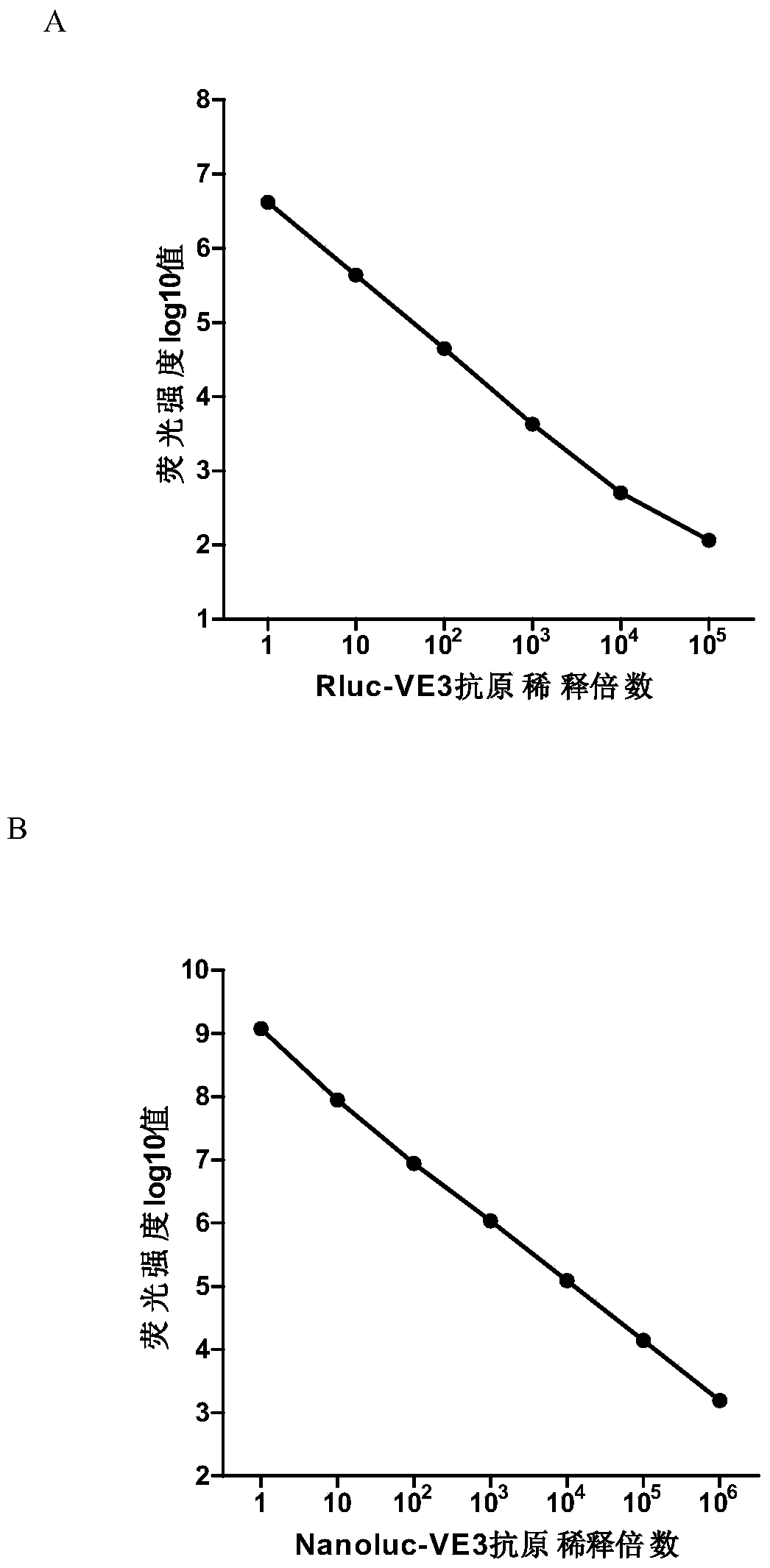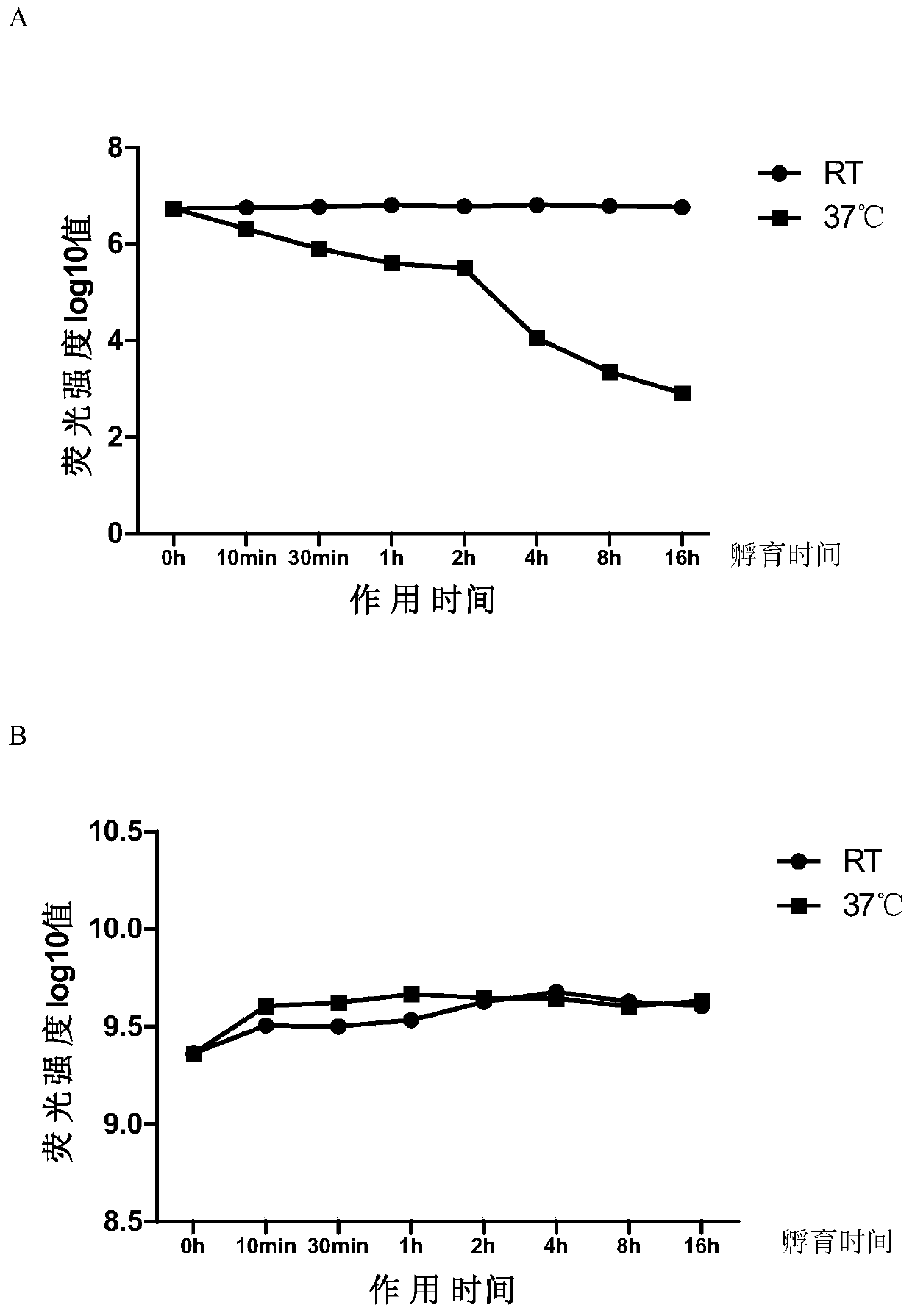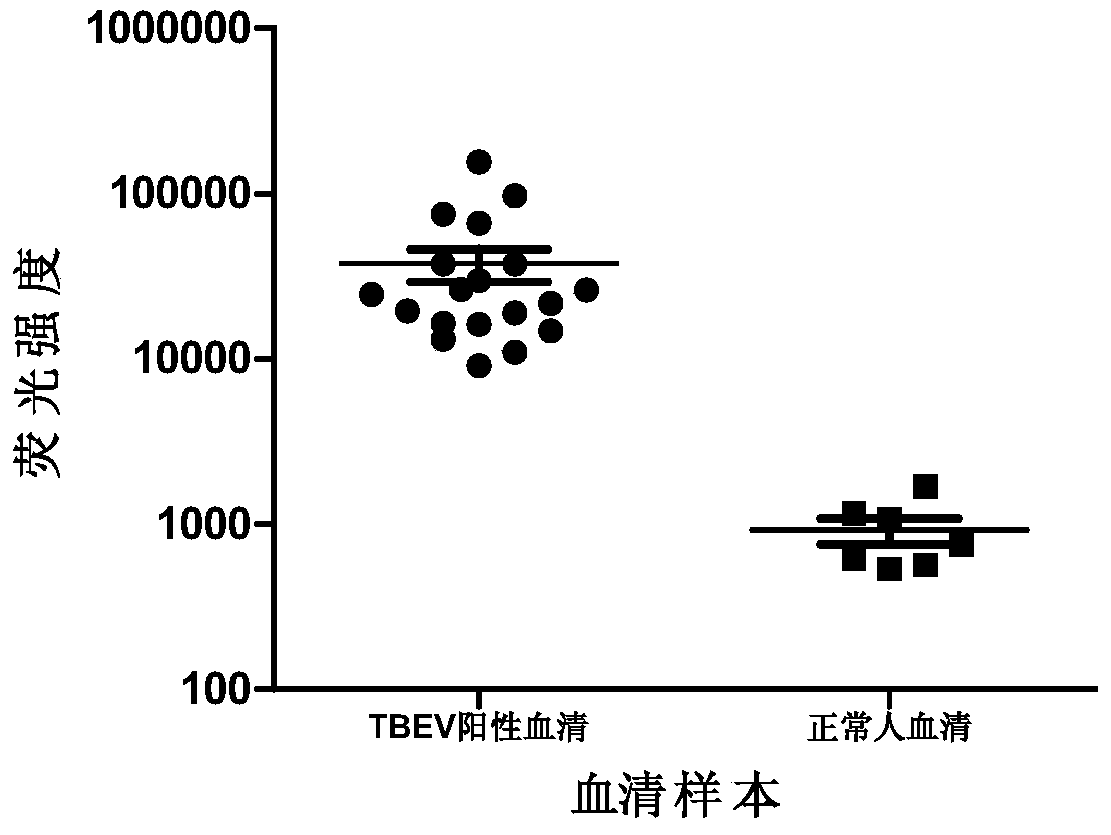A system for detecting tick-borne encephalitis virus infection
A technology for tick-borne encephalitis virus and encephalitis virus, which is applied in the field of systems for detecting tick-borne encephalitis virus infection, and can solve problems such as instability of renilla luciferase
- Summary
- Abstract
- Description
- Claims
- Application Information
AI Technical Summary
Problems solved by technology
Method used
Image
Examples
Embodiment 1
[0102] Embodiment 1, fusion protein Nanoluc-EIII can be used for detecting TBEV infection serum
[0103] This embodiment provides the application of the fusion protein of tick-borne encephalitis virus EIII protein and Nanoluc in detecting TBEV infected serum, the fusion protein of tick-borne encephalitis virus EIII protein and Nanoluc is named as Nanoluc-EIII, and Nanoluc-EIII is SEQ The coding sequence of the protein shown in ID No.1 is shown in SEQ ID No.2. Wherein the 208-300th of SEQ ID No.1 is the sequence of tick-borne encephalitis virus EIII protein, the 1-199th of SEQ ID No.1 is the sequence of Nanoluc, and the 200-207th of SEQ ID No.1 is Sequence of linker peptide.
[0104] 1. Preparation of Nanoluc-EIII
[0105] 1.1 Construction of recombinant vector
[0106] The sequence between the NheI of pcDNA3.1 (+) vector and the XhoI recognition site is replaced with the coding gene of the fusion protein of tick-borne encephalitis virus EIII protein and Nanoluc (the nucleos...
PUM
 Login to View More
Login to View More Abstract
Description
Claims
Application Information
 Login to View More
Login to View More - R&D
- Intellectual Property
- Life Sciences
- Materials
- Tech Scout
- Unparalleled Data Quality
- Higher Quality Content
- 60% Fewer Hallucinations
Browse by: Latest US Patents, China's latest patents, Technical Efficacy Thesaurus, Application Domain, Technology Topic, Popular Technical Reports.
© 2025 PatSnap. All rights reserved.Legal|Privacy policy|Modern Slavery Act Transparency Statement|Sitemap|About US| Contact US: help@patsnap.com



